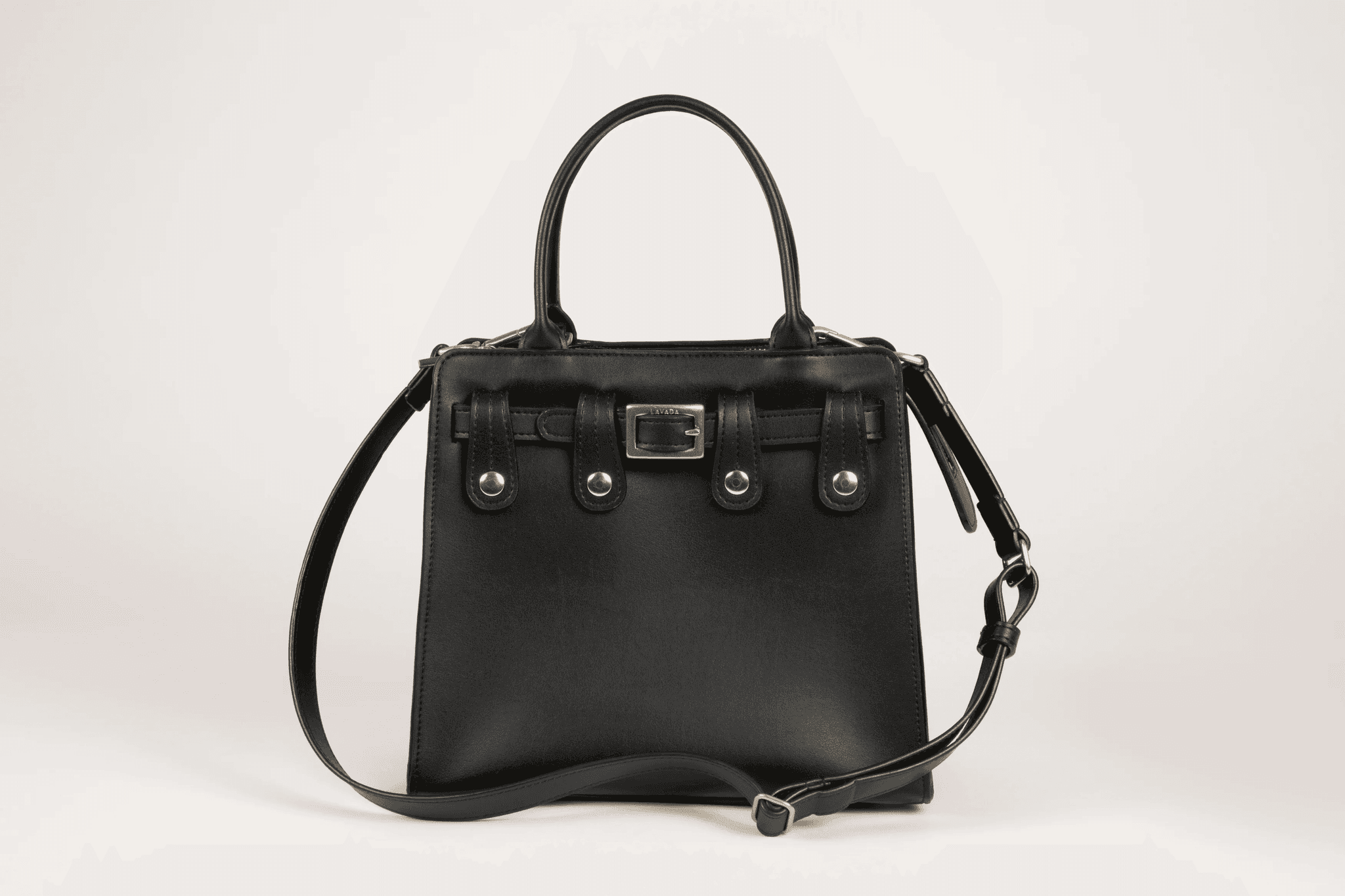Anita Thomas is the inventor and founder of Lavāda, the only patented, quiet luxury vegan handbag that offers 4-in-1 interchangeability. Anita believes stewardship is the true hallmark of sustainability that drives meaningful change, so she's built a company that's environmentally responsible from the ground up. Her goal is to give changemakers and trendsetters who aspire to achieve good stewardship an option that doesn't require sacrificing style and versatility.
What's the story behind the creation of Lavāda and the focus on vegan plant-based leather?
Lavāda was born from inspiration. In my former days of frequent travel for work, I often needed to go from one function or city to another, which required changing outfits—and even bags—more than once a day. There were times when I forgot something essential in the process of switching things out, which is where my idea for interchangeable bags came from. Then, fast forward to a visit with my mom, where we discovered that we both had ideas about handbags. But we’d never talked about it before, so neither of us knew! Shortly after this realization, I stepped away from my corporate career to bring my ideas for interchangeable handbags to life. It was during this time that I also embarked on a personal journey to improve my health, live a greener lifestyle, and reduce wastefulness as much as possible. So, using plant-based, vegan leather became much more appealing.
But in many respects, I'm also returning to my roots. I grew up in a family where we did all we could to stretch a dollar. I watched and learned from my incredible seamstress mom, who made our clothes and a bunch of household décor, which included everything from drapes to Christmas items. She taught me how to look at things differently and reimagine ways to transform everyday items into something else that would extend their usefulness and life cycle. I didn't know it then, but those lessons were an important setup for my sustainability practices. It was true stewardship in action.

The 4-in-1 patented, interchangeable bag is a unique concept. Could you share more about the inspiration behind this innovation and how it aligns with Lavāda's mission?
Our 4-in-1 interchangeable design is rooted in the principle of stewardship. Lavāda’s mission is to give consumers something that checks three boxes: durability, interchangeability, and luxury. In addition to creating a brand that uses sustainable and responsibly sourced materials, it is equally important for us to get the most useful life possible out of the products we manufacture, which is, in my opinion, at the heart of stewardship. Providing an elegant and well-crafted handbag that can be styled and reimagined in multiple ways while still allowing people to hold true to their environmental and ethical goals.
Lavāda supports slow fashion, producing small batches and on-demand garments. How does this philosophy contribute to minimising overproduction and waste in the fashion industry?
Producing smaller quantities that are appropriate for consumer demand helps customers and the planet. For too long, we’ve seen companies and retailers that participate in fast fashion wreak havoc on the environment. In some instances, they produce hundreds of millions of items every year, with billions of dollars of inventory going unsold. And those garments would have already put a dent in the environment before making their way to stores. For example, according to the EPA, millions of pounds of pesticides are used in cotton production in the U.S. alone. On top of that, it is estimated that the fashion industry’s global emissions will increase by 50% by the year 2030. Just think about the combination of toxic wastewater from harmful dyes, greenhouse gases and CO2 from shipping, and 11 million tons (U.S.) of textile waste in our landfills each year. It even gets worse when you consider the decline in the average total number of uses per garment. It’s a recipe for poor stewardship all the way around.
Slow fashion allows us to be much more thoughtful and deliberate about the number of items that are created and released. Doing this helps reduce the overwhelming burden that bulk production places on our planet’s resources. It also helps consumers support goals around sustainability, ethical work environments, and responsible consumerism.

How does Lavāda ensure the durability of its handbags, aligning with its commitment to long product life and overall sustainability?
First, we start with high-quality materials that have undergone rigorous testing. This includes the cactus vegan leather as well as all-natural brass hardware and other high-end elements we use on our bags. Then, we work with trusted partners whose expertise and track record with luxury brands are beyond reproach. We know that a big reason people have high turnover in their closets is because of fast fashion, that relies on less expensive materials coupled with shortcuts in the manufacturing process. So, we take pride in doing things the old-fashioned way. Once purchased, we continue to talk to our customers about care and maintenance to ensure longevity and to help them get the most out of their pieces.

Ethical sourcing is one of your brand’s unique selling points. Can you walk us through the process?
Finding the right resources from parties who are committed to fair trade, responsible environmental practices, and ethical working conditions with adequate pay is critical for us. Our process involves vetting partners and engaging in due diligence to ensure that we can stand behind our promises of providing an ethically produced product. It requires a lot of up-front conversations, site visits, and insights into business practices.
What strategies does Lavāda employ to address the end-of-life phase of its products?
We are still in the beginning stages of our business, but we’ve given a lot of thought to this. We plan to roll out a circular program in the future that provides cash back for returned items that can be repurposed. As it stands, our handbags and wallets are biodegradable. And we constantly explore ways to bring more natural and recycled materials to the forefront of our clothing items. We also aim to educate consumers along the way so they can make informed decisions moving forward.








